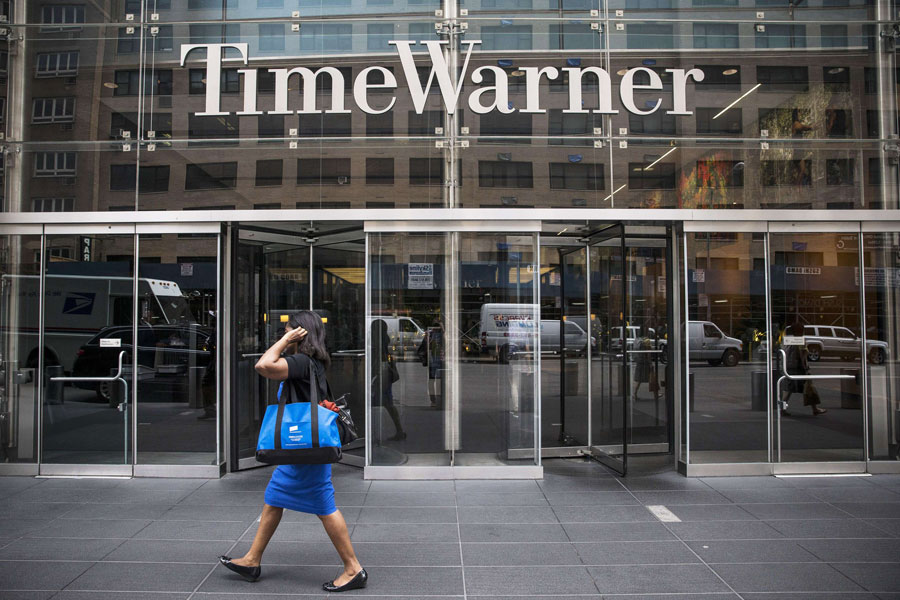NEW YORK — Charter Communications Inc., controlled by cable industry pioneer John Malone, offered to buy Time Warner Cable Inc. for $56 billion, seeking to combine the No. 3 and No. 2 US cable operators to compete against market leader Comcast Corp.
The partners, who said on Tuesday the deal would mean better access to broadband Internet for many consumers, immediately faced questions about likely regulatory obstacles that helped sink Comcast's earlier bid for Time Warner Cable (TWC) .
The Federal Communications Commission (FCC) was unusually quick to comment, saying it would closely review the deal's merits. The agency determines whether mergers are in the public interest.
"The commission will look to see how American consumers would benefit if the deal were to be approved," FCC Chairman Tom Wheeler said in a statement early Tuesday. "In applying the public interest test, an absence of harm is not sufficient."
Charter, in which Liberty Broadband Corp. owns about 26 per cent, offered about $195.71 in cash and stock for each TWC share, based on Charter's closing price on May 20.
Including debt, the deal values TWC at $78.7 billion.
The deal, the latest in a rapidly consolidating US cable industry facing competition from satellite TV and web-based services, could re-energise critics who helped keep Comcast from acquiring TWC in a year-long saga. A key area of regulatory concern would be competition in broadband Internet.
A merger of Charter and TWC, with other deals, would create a company that controls more than 20 per cent of the US broadband market, according to research firm MoffettNathanson.
The merged company would still be smaller than Comcast, which serves about one-third of US broadband users, said analyst Craig Moffett in a note to clients. He added that "one has to be sober about genuine risks that this deal could still be rejected”.
TWC's shares shot up 3.7 per cent to $177.51 on Tuesday, well below Charter's offer, suggesting concerns on Wall Street about regulatory hurdles.
Charter dropped 1.1 per cent at $173.42.
Charter's current bid is much higher than its first offer of $37 billion, which TWC rejected last year.
TWC Chief Executive Officer Rob Marcus said he was confident the deal would get done. "This is a very different transaction" from the Comcast-TWC deal, he told analysts on a conference call.
Growth has slowed at pay-TV companies such as TWC and Charter in recent years as consumers watch TV shows and movies over the Internet through services provided by companies such as Netflix Inc. and Hulu.
Among other strategies, cable companies are beefing up their higher-margin Internet businesses through consolidation and partnerships.
‘Heavy lift’
Comcast walked away last month from a deal to buy TWC for $45 billion, citing regulatory concerns.
Comcast and TWC had announced the deal in February 2014, valuing TWC at about $158 a share. The proposed union immediately ran into regulatory obstacles despite little geographic overlap. Industry executives warned it threatened to limit the choices of broadband providers.
At the time, Comcast argued newcomers like Google Inc. and Apple Inc. would ensure competition in both Internet and video markets. But a majority of Americans told pollsters the deal would be bad for consumers, while companies like Netflix urged the government to block the deal.
As late as last November, Comcast chief Brian Roberts insisted the proposed marriage was going "full steam ahead".
By April 2015, once it was clear the Justice Department and the FCC were ready to block the merger, Comcast reconsidered and abandoned its bid.
A Charter bid for TWC would likely be approved by the Justice Department's Antitrust Division but could face conditions at the FCC, said Gene Kimmelman, who worked at the Justice Department. The union would create a company smaller than Comcast, he added.
"It's more of an FCC focus and there they have still a heavy lift. Will cable prices go up? Will broadband prices go up?" said Kimmelman, now president of the public interest group Public Knowledge.
He added that the regulators' review would also focus on developing Internet video competition.
New charter
After its first attempt to buy TWC was stymied, Charter made clear it was not done making deals. Earlier this year, it agreed to buy Bright House Networks, the sixth largest US cable operator, for $10.4 billion. Charter kept the deal on track even after the Comcast-TWC deal fell through.
Charter said that, on completion of the deal, it would form a new public company, initially known as New Charter.
TWC shareholders, other than Liberty Broadband, would receive $115 in cash and New Charter shares equivalent to 0.4562 Charter shares.
Malone's Liberty Broadband would buy $5 billion in New Charter shares.
Charter said it would also form a partnership with Advance/Newhouse, the parent of Bright House, resulting in New Charter owning 86 per cent to 87 per cent of the partnership.
Charter would pay Advance/Newhouse $2 billion in cash and units in the partnership.
TWC shareholders, excluding Liberty Broadband, are expected to own about 40 per cent to 44 per cent of New Charter. Liberty Broadband would own about 19 per cent to 20 per cent.
